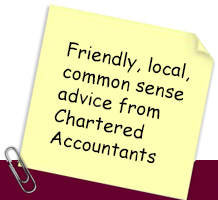On Friday the Chancellor outlined a new flexible coronavirus job retention scheme (CJRS) to apply from 1 July, and tapered government support for employers from August onwards.
It was no surprise that financial support for employers will start to taper off, but it was a surprise that flexible furloughing will be introduced a month earlier than expected from 1 July.
Flexible furlough periods
This amounts to a new CJRS from 1 July, which requires no minimum furlough period. However, no new employees can be furloughed for the first time from July.
A furlough period for any employee who has not previously been furloughed will have to begin by 10 June in order for 21 days of furlough to be completed by the end of the old scheme on 30 June. It will not be acceptable for furlough to begin after that and extend into July to make a three-week furlough period, as the rules change on 1 July.
No minimum furlough
The financial support does not change for July, as the government continues to pay:
- 80% wage support up to a £2,500 cap; plus
- Employers’ NIC and 3% pension costs on furloughed hours.
Once the new rules are in place, employees can be furloughed for any length of time, even down to a few hours, and work the rest of the pay period, subject to the employer gaining their agreement in writing.
The challenge here is that the government is trying to develop rules and guidance that cover all types of contract. I predict problems in particular for workers on zero hours. How do you work out what the “normal hours” are for zero-hours workers?
Guidance under wraps
We won’t get the answers to such questions until 12 June, when the government promised to release more guidance. Presumably this delay is based on a concern that any guidance provided before 10 June might allow people to game the system. In my view, however, the vast majority of reputable businesses need that guidance now, not in a fortnight’s time.
We do know that the £2,500 cap will be pro-rated to the furloughed hours. For example, if the employee is working 40% of the month, the furlough cap is 60% of the monthly cap, so £1,500.
Claims deadline
Some employers have put off making any CJRS claims, particularly those with close to 100 employees on furlough. They may have done so in the hope that HMRC would allow spreadsheet uploads of employee details for smaller businesses, but there seems no prospect of that now.
Those reluctant employers need to make their CJRS claims now because no new employers (as well as employees) will be admitted to the new CJRS scheme from 1 July. The CJRS claim needs to be made in June and backdated to mid-March, given that was realistically the earliest furloughing date. An employer who has made already made a claim will be able to make their final claim for any period up to 30 June 2020 by 31 July, but it looks as if there would need to be two claims then, one for furlough periods up to 30 June and one for July.
It’s important to see 30 June as the end of the CJRS under the rules as provided for in the current legislation with a new scheme beginning from 1 July.
Numbers game
Under the “new” scheme from 1 July no CJRS claim can contain more employees than in any claim up to and including 30 June 2020.
This will be interesting given the outstanding technical problems payroll professionals are still having. Certain claims can’t be made without HMRC intervention because the validation to the February 2020 FPS doesn’t work where employees have been:
- Transferred from another employer under TUPE into the PAYE scheme
- Reinstated
- Moved into the PAYE scheme after a restructure.
All of these situations are permissible, but the CJRS mechanism blocks the claim.
Hours and minimum wage
Another stumbling point in the new flexible CJRS is that any hours worked will need to be paid at or above the national minimum wage (NMW) rates, which increased by the highest ever amount from 1 April 2020. Given there have been lots of issues with employers misunderstanding the operation of salary sacrifice, and the fact that claims should have been based on post-sacrifice pay, it’s likely that salary sacrifice and the interaction with the NMW wage will cause trouble after 1 July.
Reporting hours?
Under the new CJRS employers will need to report “hours worked” and “usual hours”. Is the choice of the word “report” crucial? This implies that a report needs to be done through RTI as otherwise I would have expected the guidance to say “hours will need to be included in the claim details”.
Winding down
Financial support will change from 1 August as follows:
- August – 80% wage support up to £2,500, but no employer NIC or pension costs covered
- September – 70% wage support up to £2,187.50, but no employer NIC or pension costs covered
- October – 60% wage support up to £1,875, but no employer NIC or pension costs covered
It is important to note that the reduction in wage support doesn’t allow employers to change the employees’ terms and conditions to reduce pay to these new levels. Employees must still receive 80% of normal pay, so the employer will have to make up the difference.




